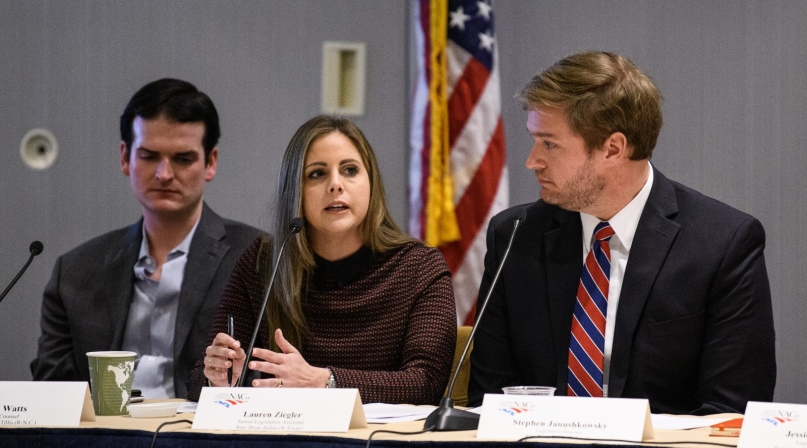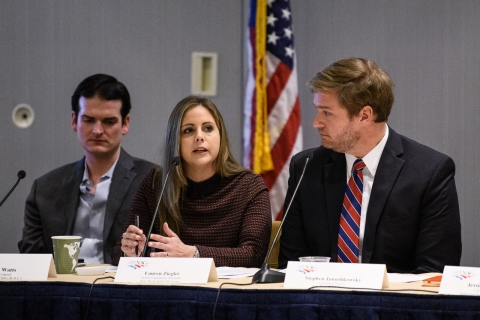Proposed legislation to stop mass shootings calls for identifying behavioral threats

Could identifying and investigating disturbing behavior stop mass shootings?
That’s the premise behind bipartisan legislation proposed in Congress by Rep. Brian Babin (R-Texas) and Rep. Val Demings (D-Fla.).
Members of NACo’s Justice and Public Safety Steering Committee heard about the proposed legislation, the Threat Assessment, Prevention and Safety Act or TAPS (H.R. 838) Act, Saturday morning during the first day of NACo’s 2020 Legislative Conference. (A Senate companion bill is S. 265.)
“The strategy of ‘it won’t happen here’ doesn’t work anymore,” Steve Janushkowsky, legislative director for Babin, told NACo members. “Nothing ends up being accomplished.”
A conversation with one constituent of Babin’s inspired the proposed legislation aimed at curtailing mass shootings, Janushkowsky said.
“Nobody just snaps,” said Lauren Ziegler, senior legislative assistant in Babin’s office. “One of the problems we’re finding…say this information comes to a co-worker, there’s not really an avenue for ‘What do we do?’ There’s this gray area.”
“We need to find a way to fill the void,” she said. “It’s about patterns of concerning behavior. You can look at risk factors.”
“That’s something we should all advocate for,” said steering committee member Sally Heyman, commissioner, Miami-Dade County.
Later in the day, steering committee members passed a proposed interim policy resolution backing the proposed legislation.

Attachments
Related News

Information-sharing bill could protect court workers
The Countering Threats and Attacks on Our Judges Act could provide more than 30,000 state and local judges with access to security assessments, best practices and a database of threats made against colleagues in the justice field.

California counties fight agricultural crime
Sheriffs' offices and prosecutors in California's central valley make specific efforts to prevent and prosecute crimes against the agricultural community.
Survivor’s story helps empower Ohio county dog wardens
A courageous dog attack survivor helped county dog wardens make their case for more authority to protect residents.
